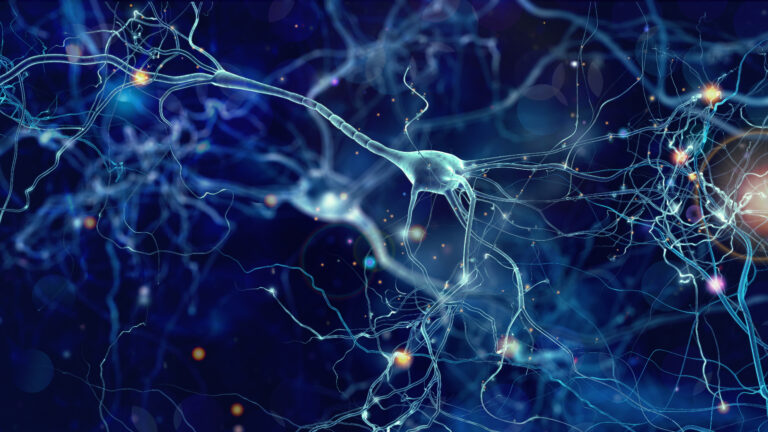Have you ever done this?
You are driving to work on the same route you have driven a thousand times before. When you get to work, you have no memory of the drive. It’s like your brain was on autopilot. You do remember what you were thinking about as you drove—the surprise visit you had from an old friend, or the delicious dinner you had last night, or myriad other things. However, you don’t remember stopping at stop signs, or seeing familiar landmarks as you passed them on your way to the office.
The next day, you are driving the same route again—only this time, you see a road crew and a sign that says, “Detour.” Suddenly you are paying attention as you figure out a new way of getting to work.
The detour is in place for several weeks, as the road project is an extensive one. After a couple of weeks this new route becomes as familiar as the old one was, and soon your brain is on autopilot once again as you drive to work.
So what happened?
Your wonderful brain
Your brain is a marvel. It is made up of billions of cells called neurons that use electricity to communicate with each other. This electricity moves through the brain in patterns called brainwaves. Each brainwave moves at a specific speed or frequency. Some brainwaves move relatively slowly; others are very rapid. Everyone has the same brainwaves, but the pattern of those waves differs from one individual to the next.
Certain brainwave patterns are associated with specific conditions. For example, people with ADHD often have too many slow waves in the front of their brains and not enough of the faster brain waves. This causes them to have a hard time focusing.
But a person with ADHD is not doomed to suffer for the rest of his life. The brain has the ability to change the way it functions—and you have the ability to make that change. When you had to find a new route to work because of the detour, your brain learned the new route by creating new pathways of communication between neurons. And it got so used to the new route that after a couple of weeks of driving it, you no longer had to consciously think about how to get to work. (But please be cautious and alert when driving anyway!)
How do we know all this about the brain?
Brain Mapping
For thousands of years, humans have been curious about the brain and how it works. Some grotesque experiments have been done over the centuries to study the brain, but in the 1880s, scientists developed non-invasive techniques, and improvements continued from there.
We now have ways to “map” the brain’s electrical signals and detect areas that might not be working as well as they could. And scientists have discovered marvelous ways to correct these flaws and help people live more comfortable lives.
Train your brain
The process of getting our brains to function in healthier ways is called operant conditioning. Those are big words that carry a simple meaning. Think of it this way: You want to teach your dog to sit. Each time he sits on command, you give him a treat. He eventually learns that every time he sits when you say “Sit!” he is rewarded by a treat, so he becomes a very obedient to that command.
You can train your brain in much the same way through Neurofeedback.
Neurofeedback
Neurofeedback works on the same principle as training your dog. You will first go through a brain mapping session, where sensors will be placed on your scalp to measure your brainwaves and determine which areas of your brain (if any) are not working as well as they could be.
After your brain has been mapped, the Neurofeedback therapy can begin. A trained clinician will again place sensors on your scalp. You will be connected to a computer monitor, so you will actually be able to see your brainwave patterns. The clinician will then lead you in a series of exercises aimed at changing the brainwaves in certain areas of your brain.
You will hear sounds and tones and will receive visual feedback on the computer screen and be rewarded—not by dog treats—but by puzzles, animations, or video graphics when your brain behaves as coached. Your brain will practice the desired behavior and will eventually develop the ability to maintain that behavior by itself.
With Neurofeedback, you are actually changing your brain by teaching it new and better ways of functioning.

What conditions does it treat?
It’s important to know that Neurofeedback is not considered to be a cure, but rather is a method of managing or controlling the workings of the brain so it functions in a healthier way.
Following is a list of just some of the conditions Neurofeedback has been used to treat:
- Insomnia
- Memory
- ADHD
- Depression
- Autism
- Anxiety
- Post-traumatic stress disorder
- Certain seizure conditions
- Addiction
- Pain
- Headaches
Who uses Neurofeedback?
Various professional sports teams use Neurofeedback to enhance performance, including the US Olympic Ski Team, Olympic beach-volleyball player Kerri Walsh-Jennings, and members of the Italian soccer team.
The Canadian short-track speed skating team used neurofeedback to help them achieve five medals, including two golds, at the 2010 Vancouver Winter Olympic Games.
NASA (National Aeronautics and Space Administration) has used Neurofeedback. In fact, Alan Pope, a scientist at NASA, discovered that neurofeedback could improve astronauts’ attention and engagement in tasks, which, as you can imagine, require sharp, unwavering focus.
All Good!
Neurofeedback has no side effects to speak of. Occasionally people feel tired after a Neurofeedback session, owing to the energy they have expended in concentrating on changing the brain.
Overall, though, neurofeedback is an excellent and long-lasting way to retrain your brain to function more efficiently and effectively. If you or someone you love is interested in trying an alternative, non-invasive therapy or to augment a current treatment, get in touch with Elumind’s Client Care and schedule a therapeutic assessment and start the journey of healing.
Elumind Centres for Brain Excellence is an integrated mental health centre offering solutions that can help you with your mental/brain health needs. To start your journey, book your FREE 15-MINUTE PHONE CONSULTATION. We are here for you.








